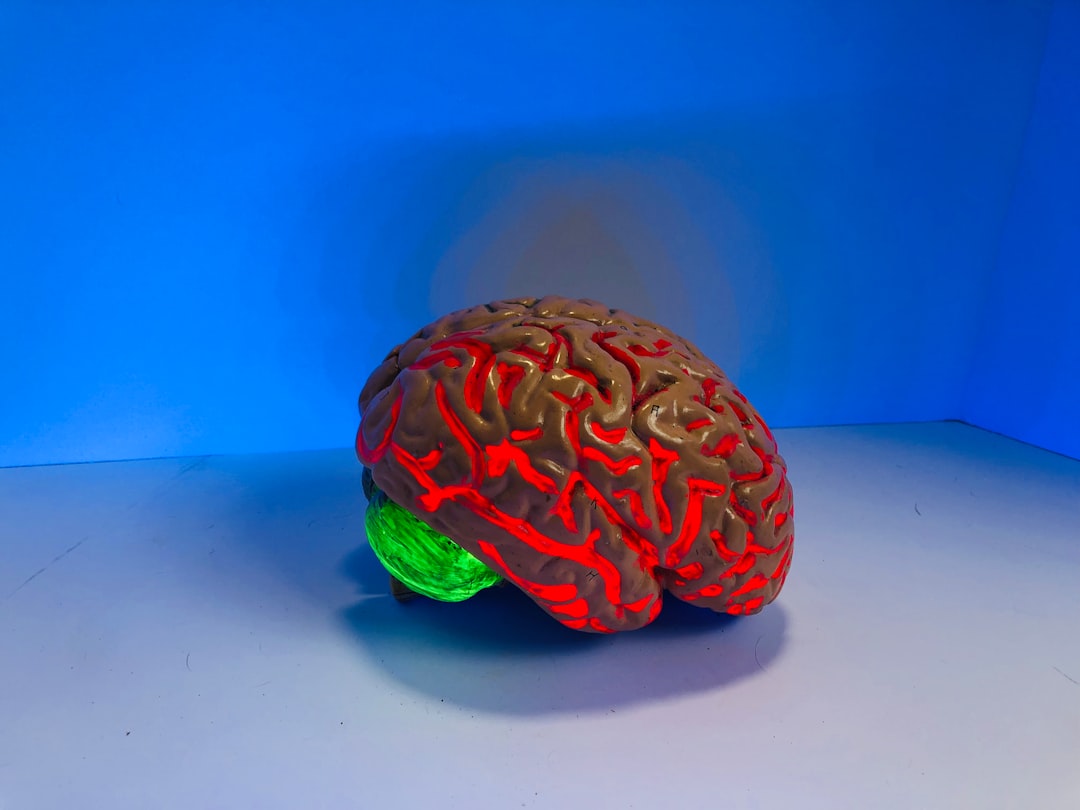Attention-deficit/hyperactivity disorder (ADHD) is a neurodevelopmental disorder that affects both children and adults. It is characterized by symptoms of inattention, hyperactivity, and impulsivity, which can significantly impact an individual’s daily life. ADHD is often diagnosed in childhood, but it can persist into adulthood, causing challenges in various aspects of life. The exact cause of ADHD is not fully understood, but it is believed to be a combination of genetic, environmental, and neurological factors. It is important to recognize that ADHD is a legitimate medical condition and not simply a result of laziness or lack of discipline.
ADHD can manifest differently in each individual, with some experiencing more symptoms of inattention, while others struggle more with hyperactivity and impulsivity. The symptoms of ADHD can interfere with academic and work performance, as well as social and familial relationships. It is crucial for individuals with ADHD to seek proper diagnosis and treatment in order to effectively manage the challenges associated with the disorder. With the right support and strategies, individuals with ADHD can lead fulfilling and successful lives.
Key Takeaways
- ADHD is a neurodevelopmental disorder that affects both children and adults, characterized by symptoms such as inattention, hyperactivity, and impulsivity.
- ADHD can impact daily activities such as organization, time management, and completing tasks, leading to difficulties in maintaining routines and responsibilities.
- Managing ADHD in daily life involves strategies such as creating structured routines, breaking tasks into smaller steps, and utilizing tools like planners and reminders to improve organization and time management.
- ADHD can affect relationships by causing misunderstandings, communication challenges, and difficulties in managing emotions, but open communication, empathy, and seeking professional help can help in managing these challenges.
- ADHD can impact work and school performance by affecting focus, productivity, and task completion, but accommodations, support from teachers/employers, and utilizing strategies like breaks and time management techniques can help in managing these challenges.
- Coping strategies for ADHD include mindfulness, exercise, adequate sleep, and seeking therapy or counseling to manage symptoms and improve overall well-being.
- Seeking support for ADHD from healthcare professionals, therapists, support groups, and loved ones can provide valuable resources, understanding, and guidance in managing the challenges of ADHD.
The Impact of ADHD on Daily Activities
ADHD can have a profound impact on daily activities, making it difficult for individuals to focus, stay organized, and control their impulses. In children, ADHD can affect their ability to succeed in school, follow instructions, and maintain friendships. Adults with ADHD may struggle with time management, completing tasks, and maintaining employment. The symptoms of ADHD can also affect daily routines such as getting ready in the morning, managing household chores, and even driving safely.
The impact of ADHD on daily activities can lead to feelings of frustration, low self-esteem, and a sense of being overwhelmed. Individuals with ADHD may struggle to keep up with responsibilities and may feel misunderstood by those around them. It is important for individuals with ADHD to seek support and develop coping strategies to help them navigate daily activities more effectively. With the right tools and resources, individuals with ADHD can learn to manage their symptoms and lead more productive lives.
Managing ADHD in Daily Life
Managing ADHD in daily life requires a multi-faceted approach that addresses the various symptoms and challenges associated with the disorder. This may include medication, therapy, lifestyle changes, and support from family and friends. Medication can help to improve focus and reduce impulsivity, while therapy can provide individuals with ADHD with coping strategies and tools to manage their symptoms. Lifestyle changes such as regular exercise, a healthy diet, and adequate sleep can also have a positive impact on managing ADHD symptoms.
In addition to professional support, individuals with ADHD can benefit from developing organizational strategies, such as using planners and calendars to keep track of tasks and appointments. Breaking tasks into smaller, manageable steps can also help individuals with ADHD stay on top of their responsibilities. It is important for individuals with ADHD to communicate their needs to those around them and seek understanding from family members, friends, and colleagues. With a comprehensive approach to managing ADHD, individuals can improve their daily functioning and overall well-being.
ADHD and Relationships
| Aspect | Impact |
|---|---|
| Communication | Difficulty in active listening and staying focused during conversations |
| Emotional Regulation | Challenges in managing emotions and impulsivity |
| Organization | Struggles with planning and keeping track of responsibilities |
| Attention to Detail | Tendency to overlook details and forget important dates |
| Support Needs | Requirement for understanding and patience from partner |
ADHD can have a significant impact on relationships, as the symptoms of the disorder can affect communication, organization, and emotional regulation. In romantic relationships, individuals with ADHD may struggle with forgetfulness, impulsivity, and difficulty following through on commitments. This can lead to frustration and misunderstandings between partners. In familial relationships, parents with ADHD may find it challenging to maintain consistent routines and discipline for their children. Children with ADHD may also struggle to follow rules and complete tasks at home.
In friendships and social interactions, individuals with ADHD may have difficulty listening attentively, staying organized for social events, or controlling impulsive behaviors. This can lead to feelings of isolation and rejection. It is important for individuals with ADHD to communicate openly with their loved ones about their struggles and seek support in developing strategies to improve their relationships. With understanding and patience from those around them, individuals with ADHD can build strong and meaningful connections.
ADHD and Work/School Performance
ADHD can significantly impact work and school performance, making it difficult for individuals to stay focused, organized, and productive. In school settings, children with ADHD may struggle to complete assignments, follow instructions, and stay on task during lessons. This can lead to academic underachievement and feelings of frustration. In the workplace, adults with ADHD may have difficulty meeting deadlines, staying organized, and managing their time effectively. This can affect their job performance and career advancement.
It is important for individuals with ADHD to seek accommodations in school or work settings that can help them succeed despite their challenges. This may include extra time for assignments or the use of organizational tools such as planners or digital reminders. Developing effective time management skills and breaking tasks into smaller steps can also help individuals with ADHD improve their performance in academic and work settings. With the right support and accommodations, individuals with ADHD can thrive in their educational and professional pursuits.
Coping Strategies for ADHD

Coping strategies are essential for individuals with ADHD to manage their symptoms and navigate daily life more effectively. These strategies may include developing routines and structure, using organizational tools such as planners or digital reminders, breaking tasks into smaller steps, and seeking support from family members or colleagues. Regular exercise, a healthy diet, and adequate sleep can also have a positive impact on managing ADHD symptoms.
Therapy can provide individuals with ADHD with coping strategies and tools to manage their symptoms. Cognitive-behavioral therapy (CBT) can help individuals with ADHD identify negative thought patterns and develop more positive coping mechanisms. Mindfulness practices such as meditation or yoga can also help individuals with ADHD improve their focus and emotional regulation. It is important for individuals with ADHD to explore different coping strategies and find what works best for them in managing their symptoms.
Seeking Support for ADHD
Seeking support is crucial for individuals with ADHD to effectively manage the challenges associated with the disorder. This may include seeking a proper diagnosis from a qualified healthcare professional who specializes in ADHD. Once diagnosed, individuals can work with healthcare providers to develop a comprehensive treatment plan that may include medication, therapy, lifestyle changes, and support from family and friends.
Support groups for individuals with ADHD can provide a sense of community and understanding from others who are facing similar challenges. These groups can offer valuable resources, coping strategies, and a sense of belonging for individuals with ADHD. It is important for individuals with ADHD to communicate their needs to those around them and seek understanding from family members, friends, and colleagues. With the right support system in place, individuals with ADHD can learn to manage their symptoms effectively and lead fulfilling lives.
In conclusion, ADHD is a complex neurodevelopmental disorder that can have a significant impact on various aspects of an individual’s life. However, with the right support, treatment, and coping strategies, individuals with ADHD can learn to manage their symptoms effectively and lead fulfilling lives. It is important for those affected by ADHD to seek proper diagnosis and support in order to navigate the challenges associated with the disorder. With understanding from family members, friends, colleagues, and healthcare providers, individuals with ADHD can thrive in their personal relationships, academic pursuits, and professional endeavors.
If you’re looking for more information about ADHD testing, you may find the article “Understanding the Importance of Early ADHD Testing” on ADHD-testing.com to be helpful. This article discusses the significance of early detection and testing for ADHD in children and provides valuable insights into the process. You can read the full article here.
FAQs
What is ADHD?
ADHD stands for Attention Deficit Hyperactivity Disorder. It is a neurodevelopmental disorder that affects both children and adults. It is characterized by symptoms of inattention, hyperactivity, and impulsivity.
What are the symptoms of ADHD?
The symptoms of ADHD can vary from person to person, but generally include inattention, hyperactivity, and impulsivity. In children, symptoms may include difficulty staying focused, being easily distracted, and difficulty following instructions. In adults, symptoms may include forgetfulness, disorganization, and difficulty managing time.
Is ADHD a real disorder?
Yes, ADHD is recognized as a legitimate neurodevelopmental disorder by the American Psychiatric Association, the World Health Organization, and other major medical and psychological organizations.
Can ADHD be treated?
Yes, ADHD can be treated with a combination of medication, therapy, and behavioral interventions. Treatment plans are tailored to the individual and may include stimulant medications, non-stimulant medications, and behavioral therapy.
Can ADHD be outgrown?
While some children may experience a reduction in symptoms as they get older, ADHD is a lifelong condition for many individuals. However, with proper treatment and support, individuals with ADHD can learn to manage their symptoms effectively.














